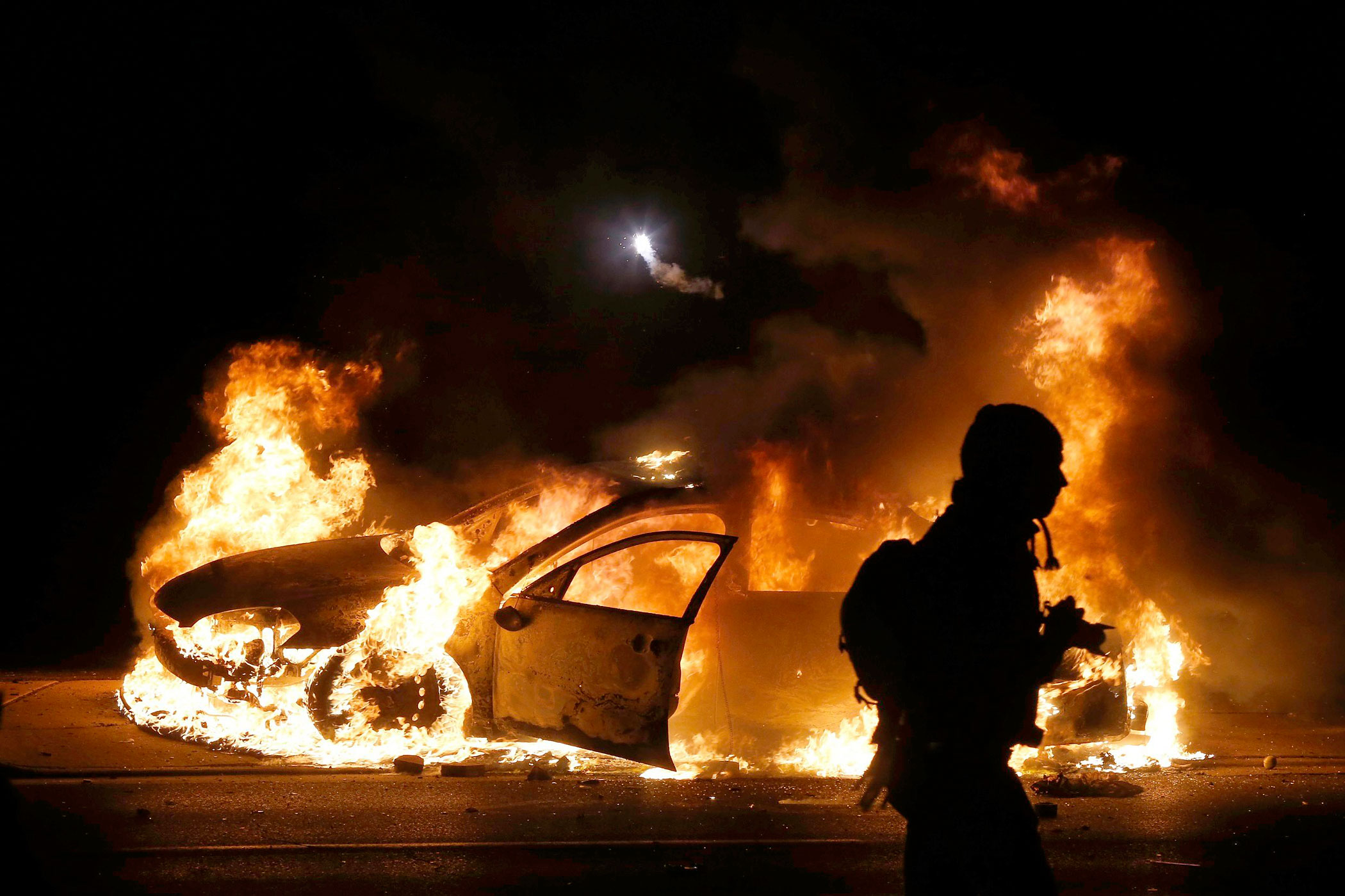
Darlena Cunha is a contributor to TIME
When a police officer shoots a young, unarmed black man in the streets, then does not face indictment, anger in the community is inevitable. It’s what we do with that anger that counts. In such a case, is rioting so wrong?
Riots are a necessary part of the evolution of society. Unfortunately, we do not live in a universal utopia where people have the basic human rights they deserve simply for existing, and until we get there, the legitimate frustration, sorrow and pain of the marginalized voices will boil over, spilling out into our streets. As “normal” citizens watch the events of Ferguson unfurl on their television screens and Twitter feeds, there is a lot of head shaking, finger pointing, and privileged explanation going on. We wish to seclude the incident and the people involved. To separate it from our history as a nation, to dehumanize the change agents because of their bad and sometimes violent decisions—because if we can separate the underlying racial tensions that clearly exist in our country from the looting and rioting of select individuals, we can continue to ignore the problem.
VOTE: Should the Ferguson Protestors Be TIME’s Person of the Year?
While the most famous rant against the riots thus far comes from Hercules actor Kevin Sorbo, where he calls the rioters “animals” and “losers,” there are thousands of people echoing these sentiments. Sorbo correctly ascertains that the rioting has little to do with the shooting of an unarmed black man in the street, but he blames it on the typical privileged American’s stereotype of a less fortunate sect of human being—that the looting is a result of frustration built up over years of “blaming everyone else, The Man, for their failures.”
Because when you have succeeded, it ceases to be a possibility, in our capitalist society, that anyone else helped you. And if no one helped you succeed, then no one is holding anyone else back from succeeding. Except they did help you, and they are holding people back. So that blaming someone else for your failures in the United States may very well be an astute observation of reality, particularly as it comes to white privilege versus black privilege. And, yes, they are different, and they are tied to race, and that doesn’t make me a racist, it makes me a realist. If anything, I am racist because I am white. Until I have had to walk in a person of color’s skin, I will never understand, I will always take things for granted, and I will be inherently privileged. But by ignoring the very real issues this country still faces in terms of race to promote an as-of-yet imaginary colorblind society, we contribute to the problem at hand, which is centuries of abuses lobbied against other humans on no basis but that of their skin color.
Ferguson Ignites With Violence After Grand Jury Decision
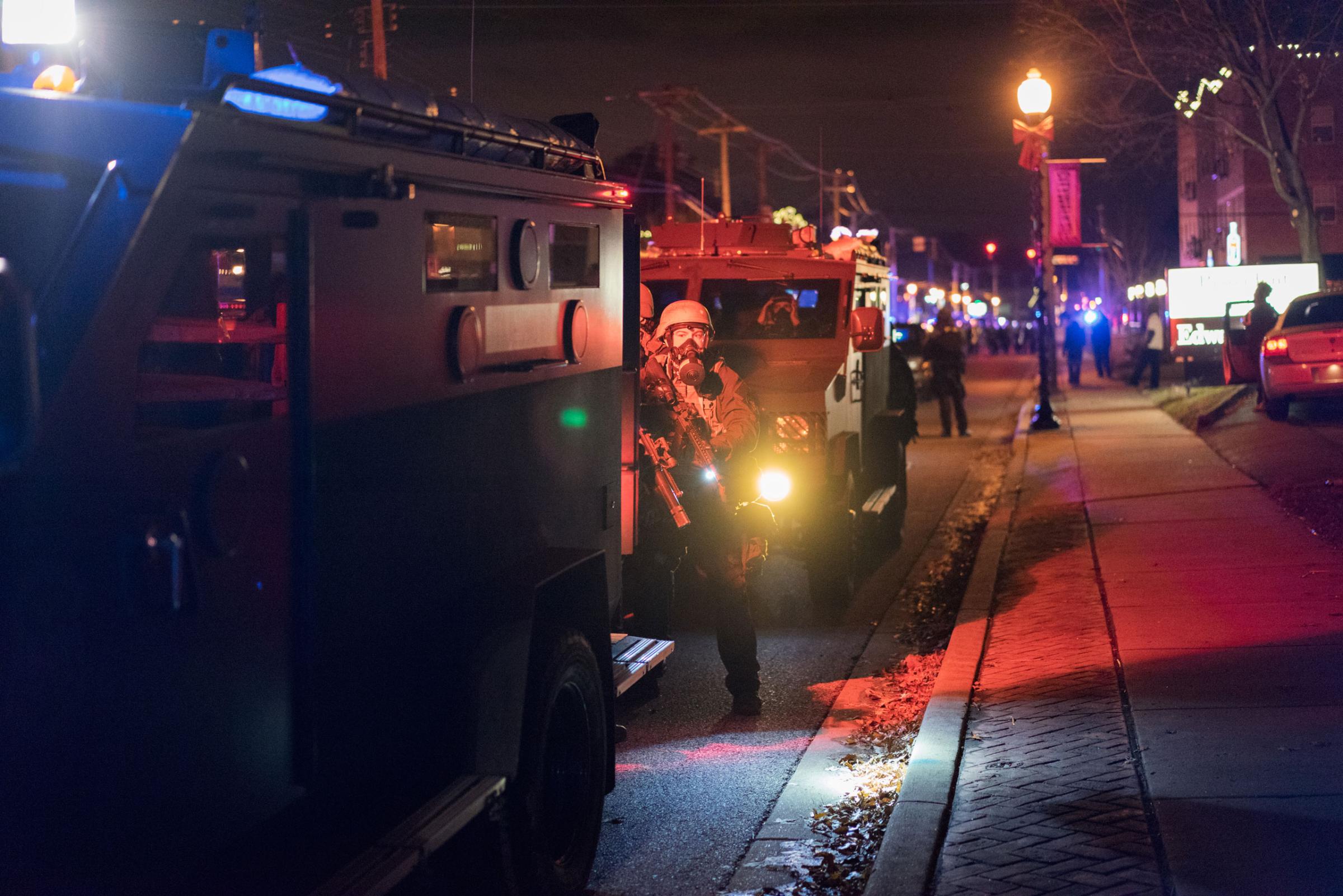

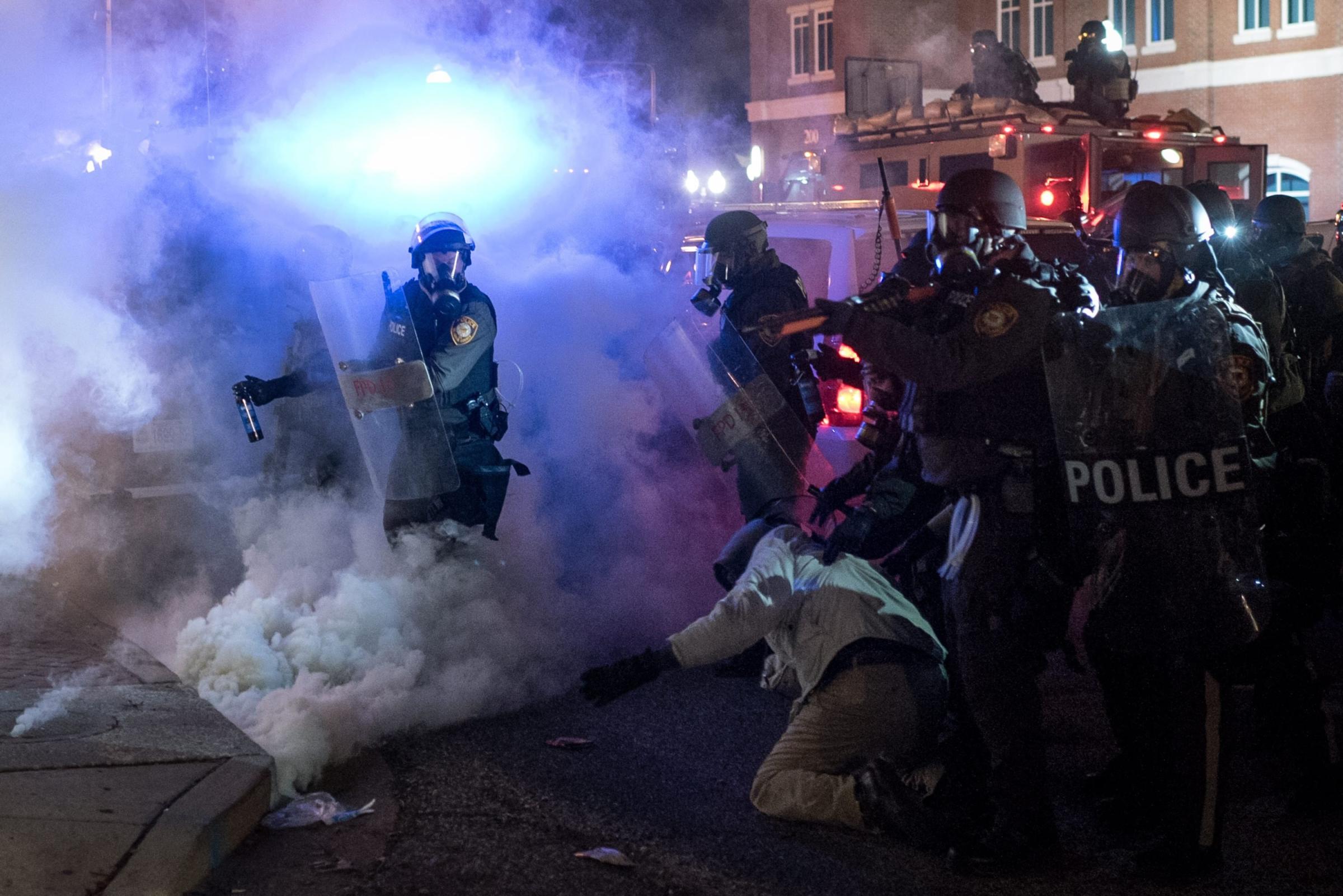
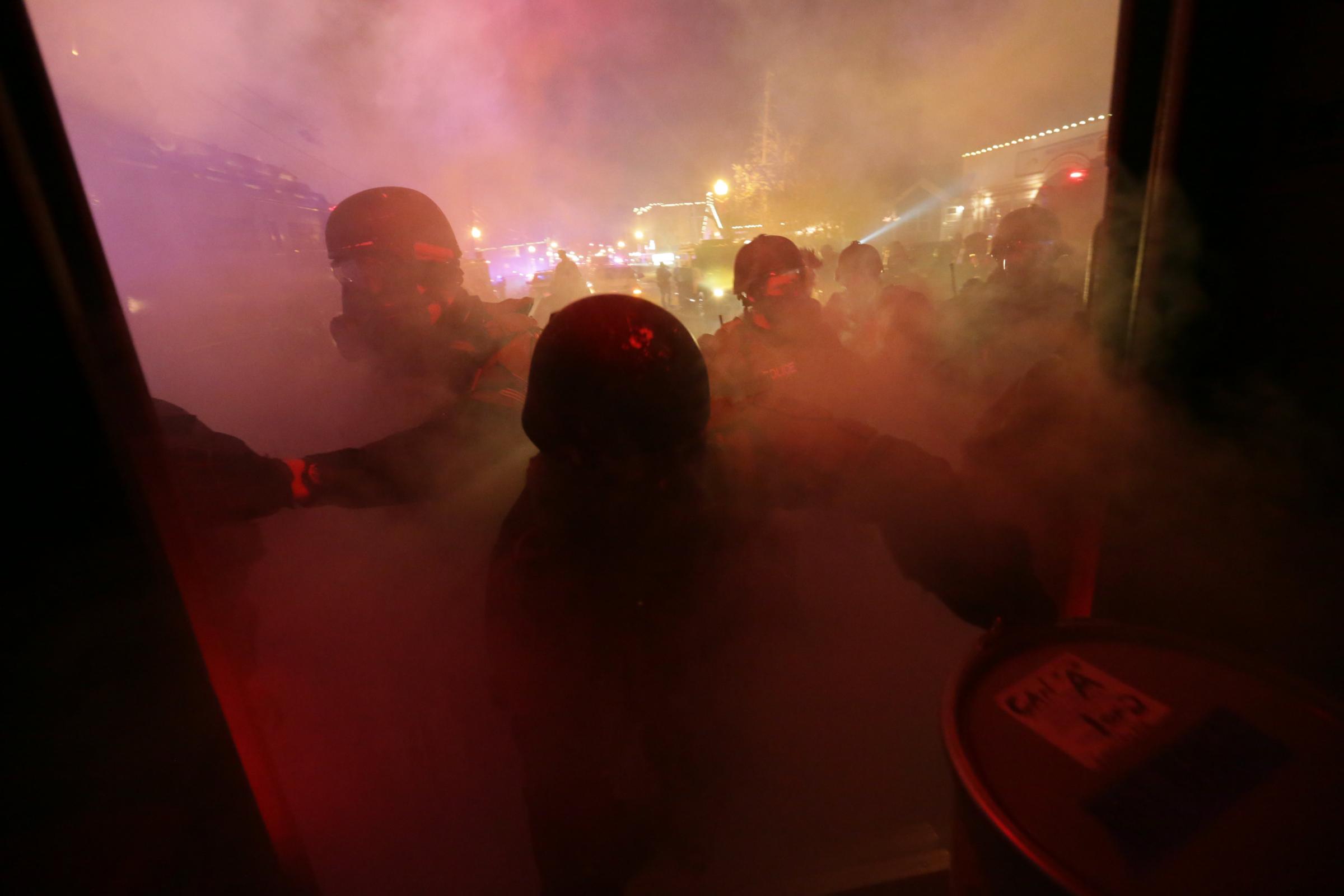
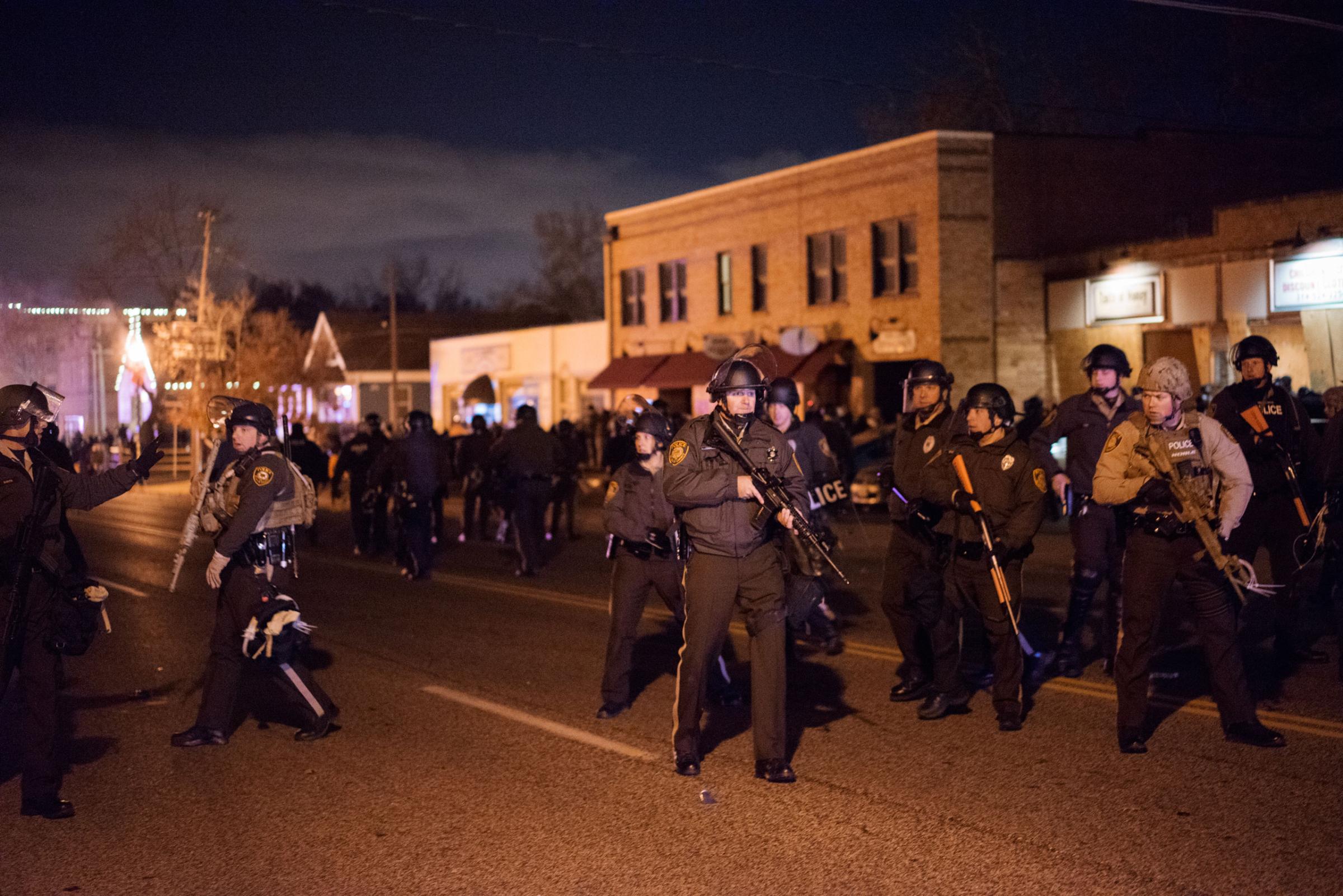
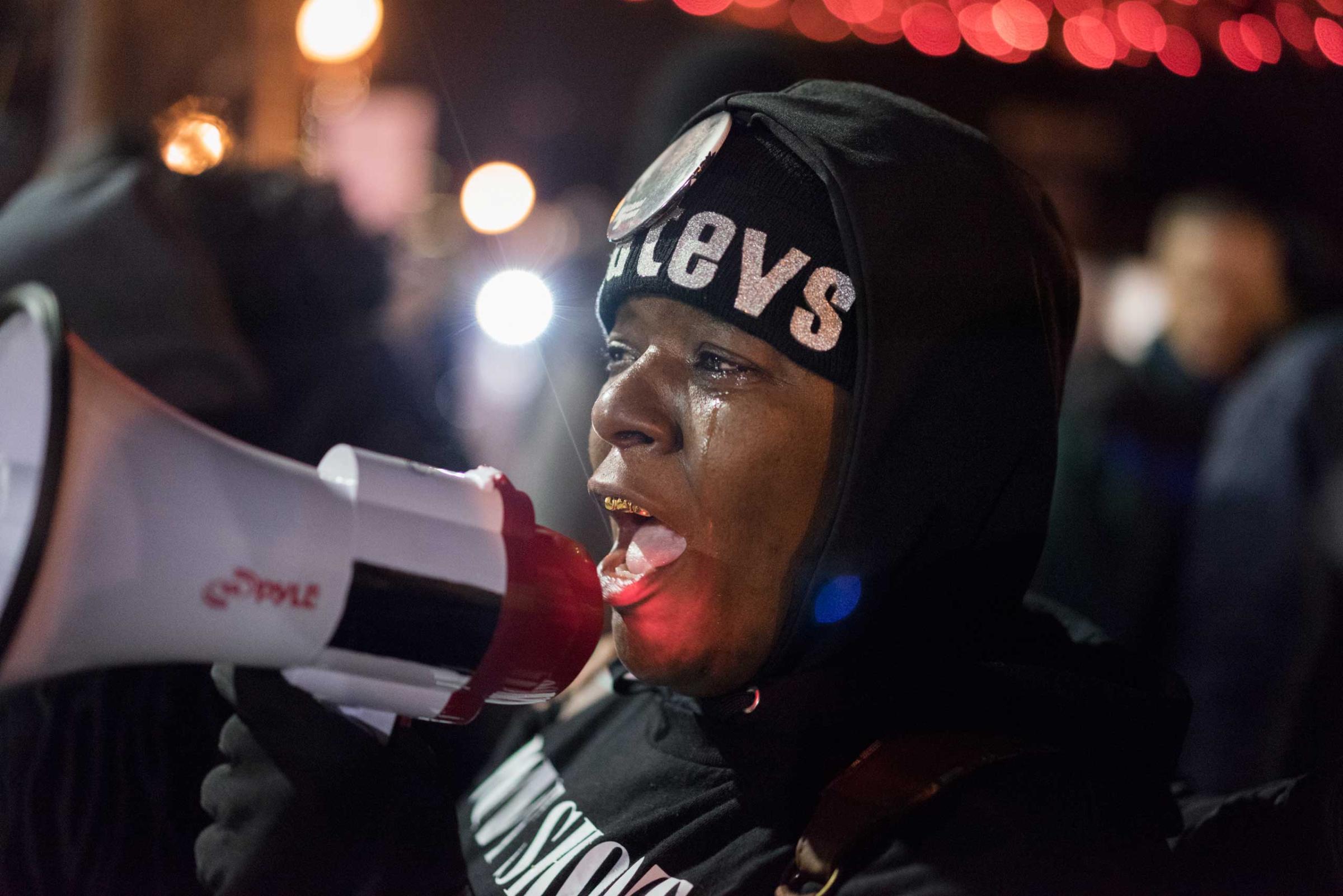
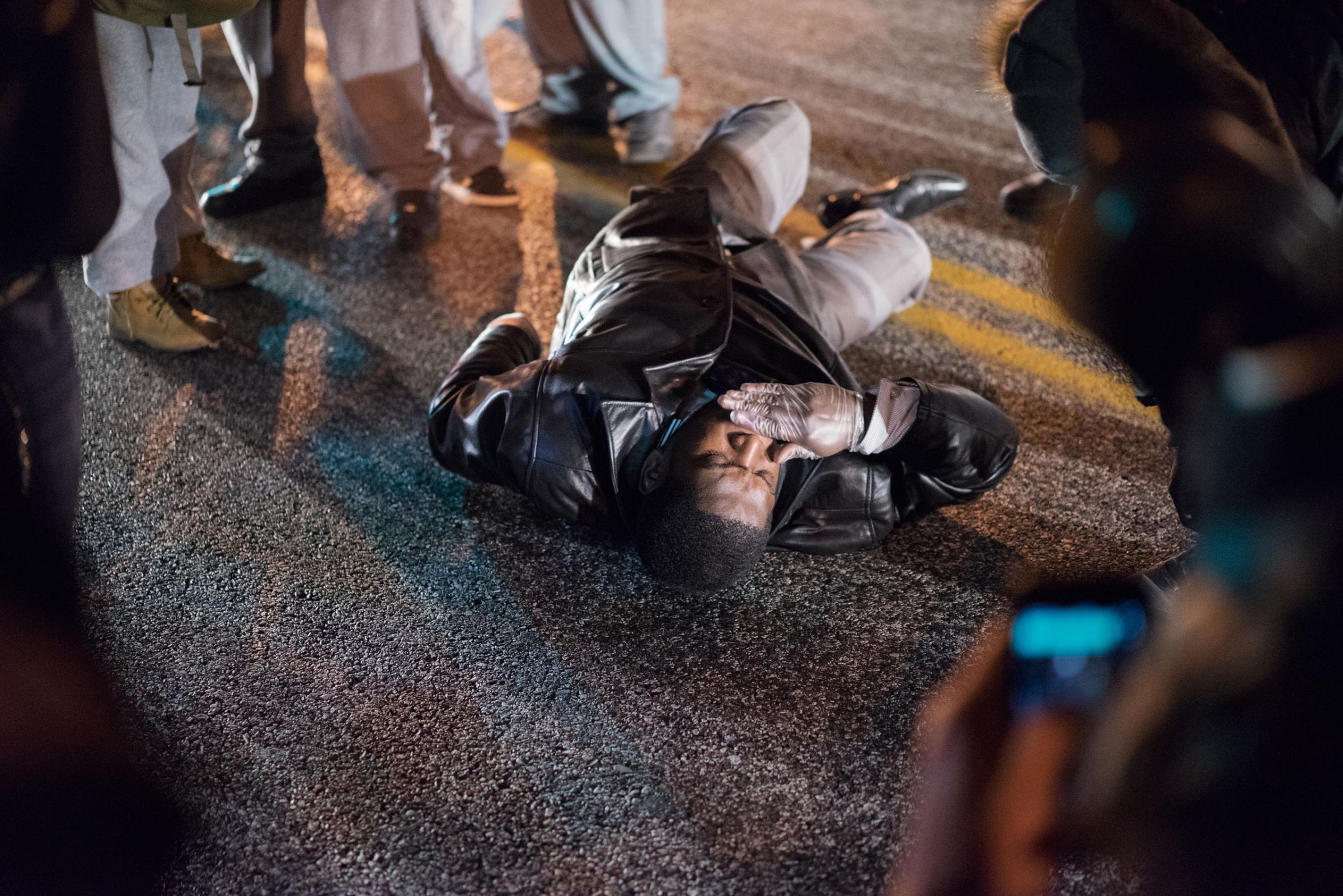
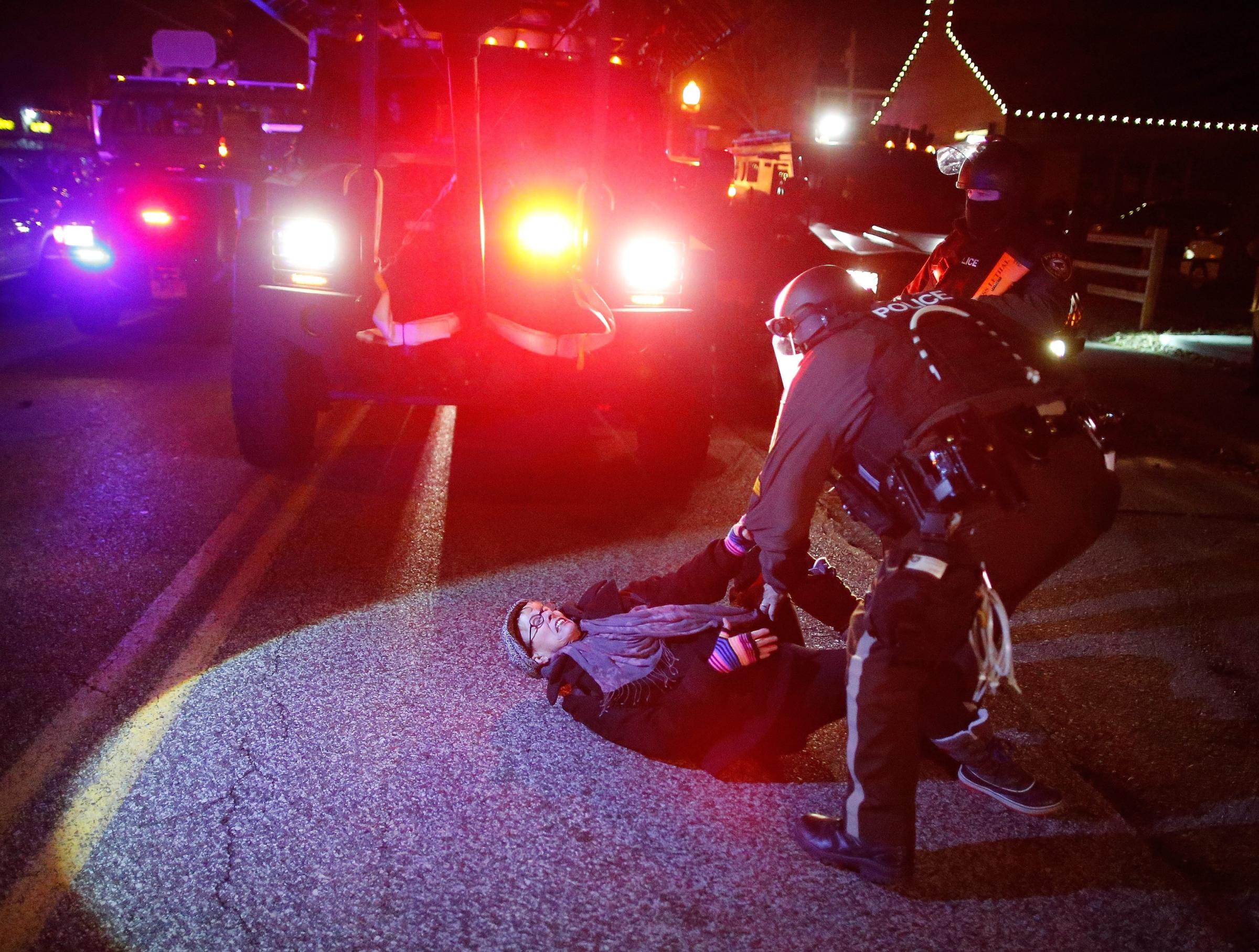
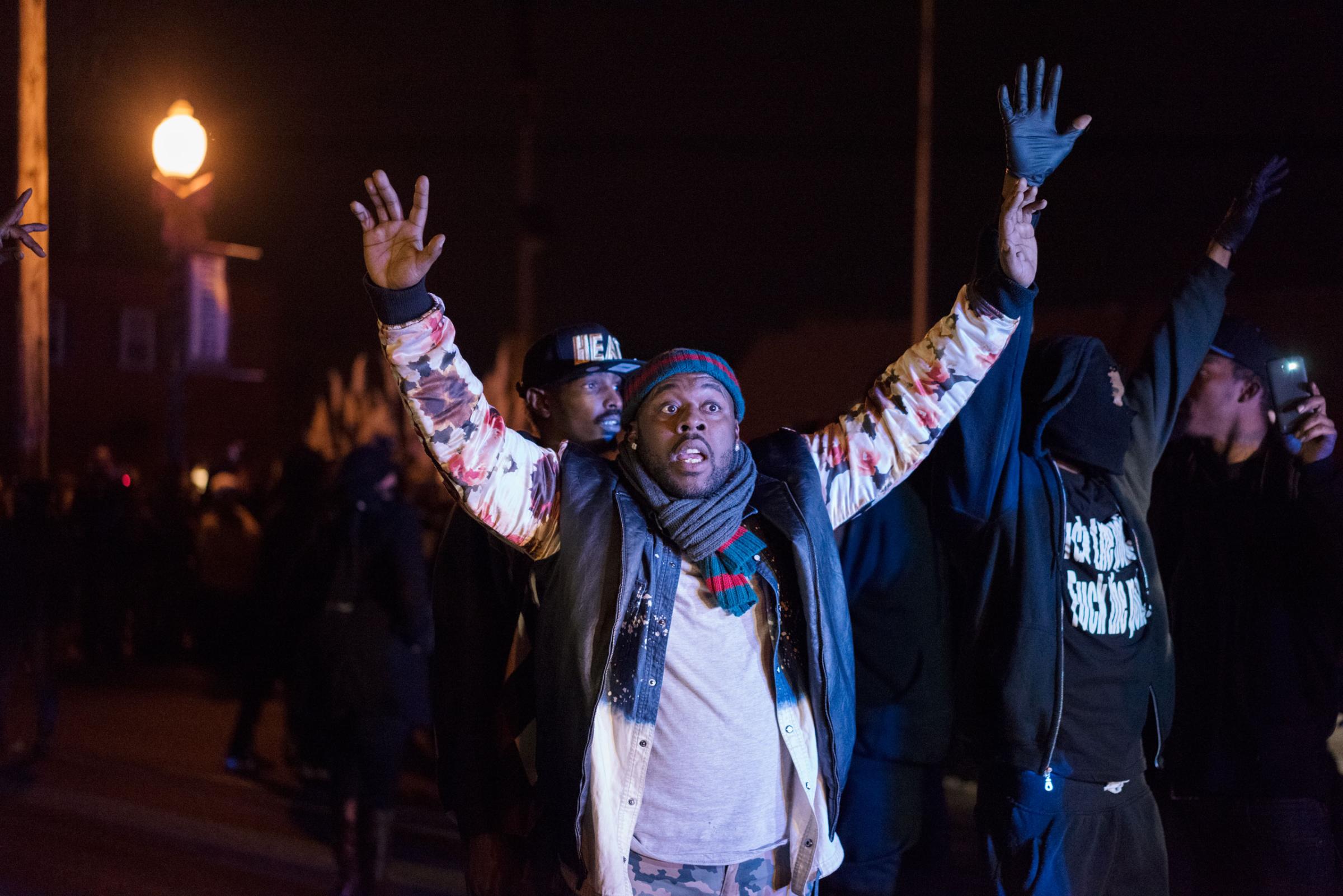
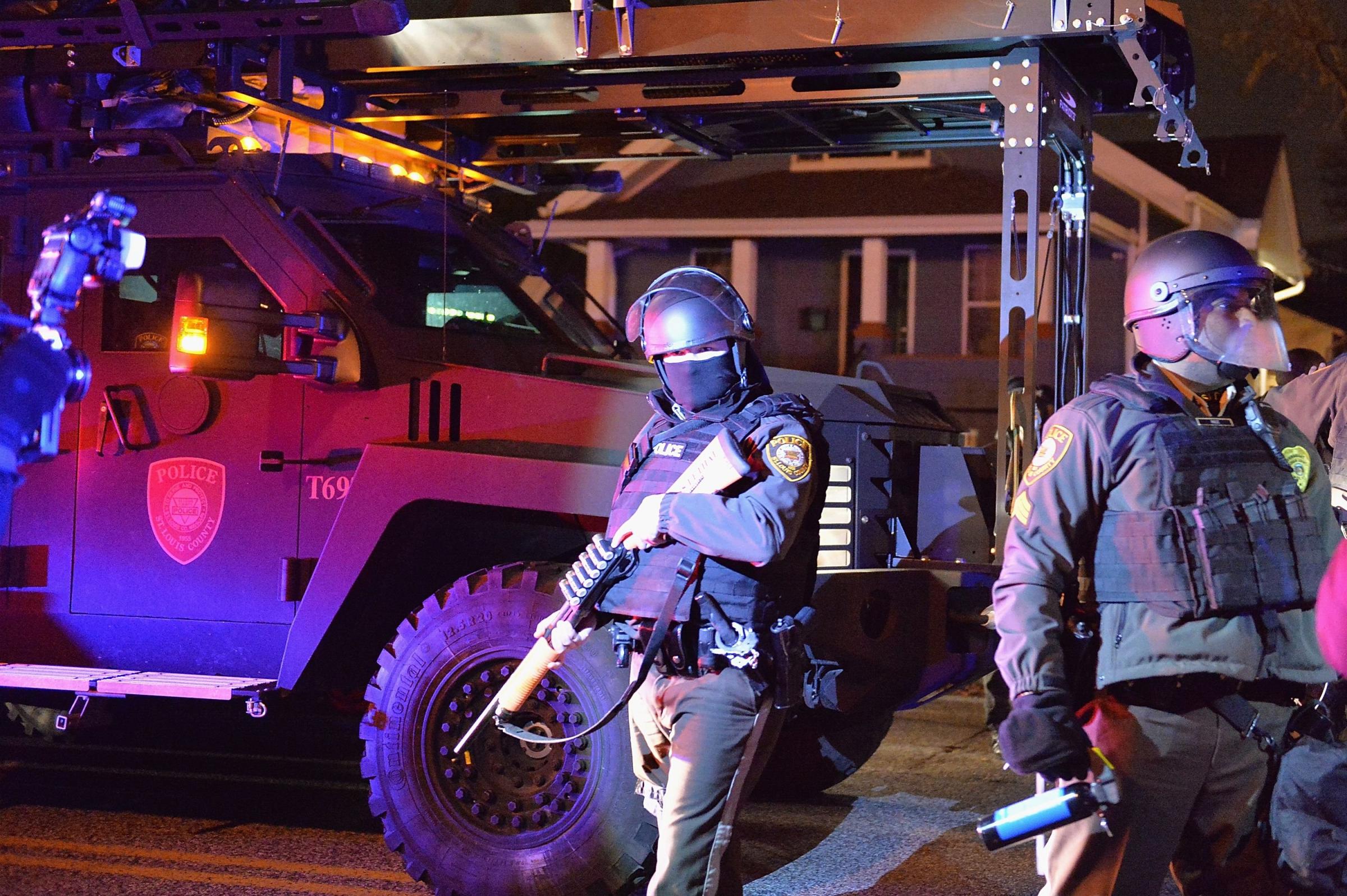
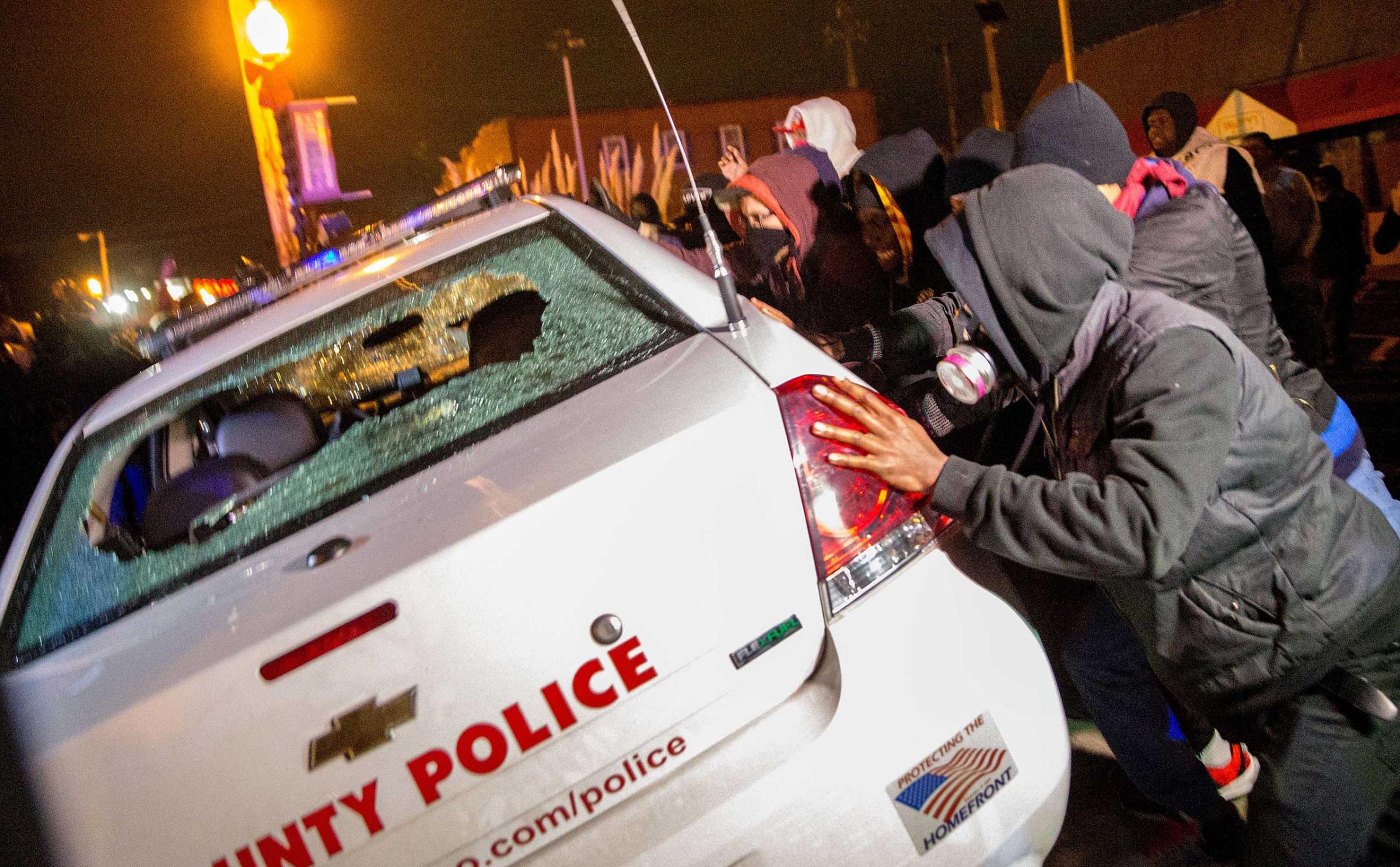
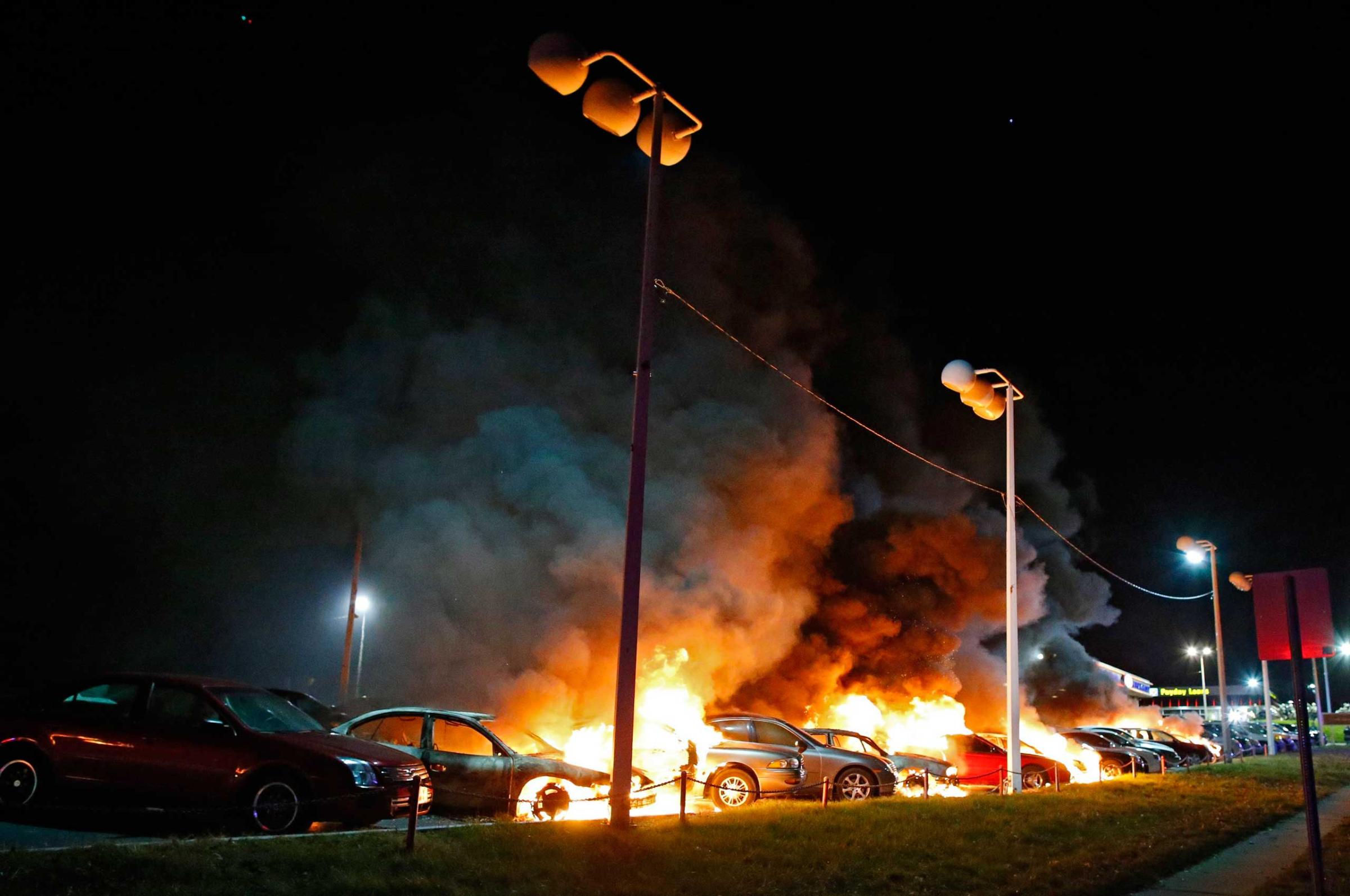
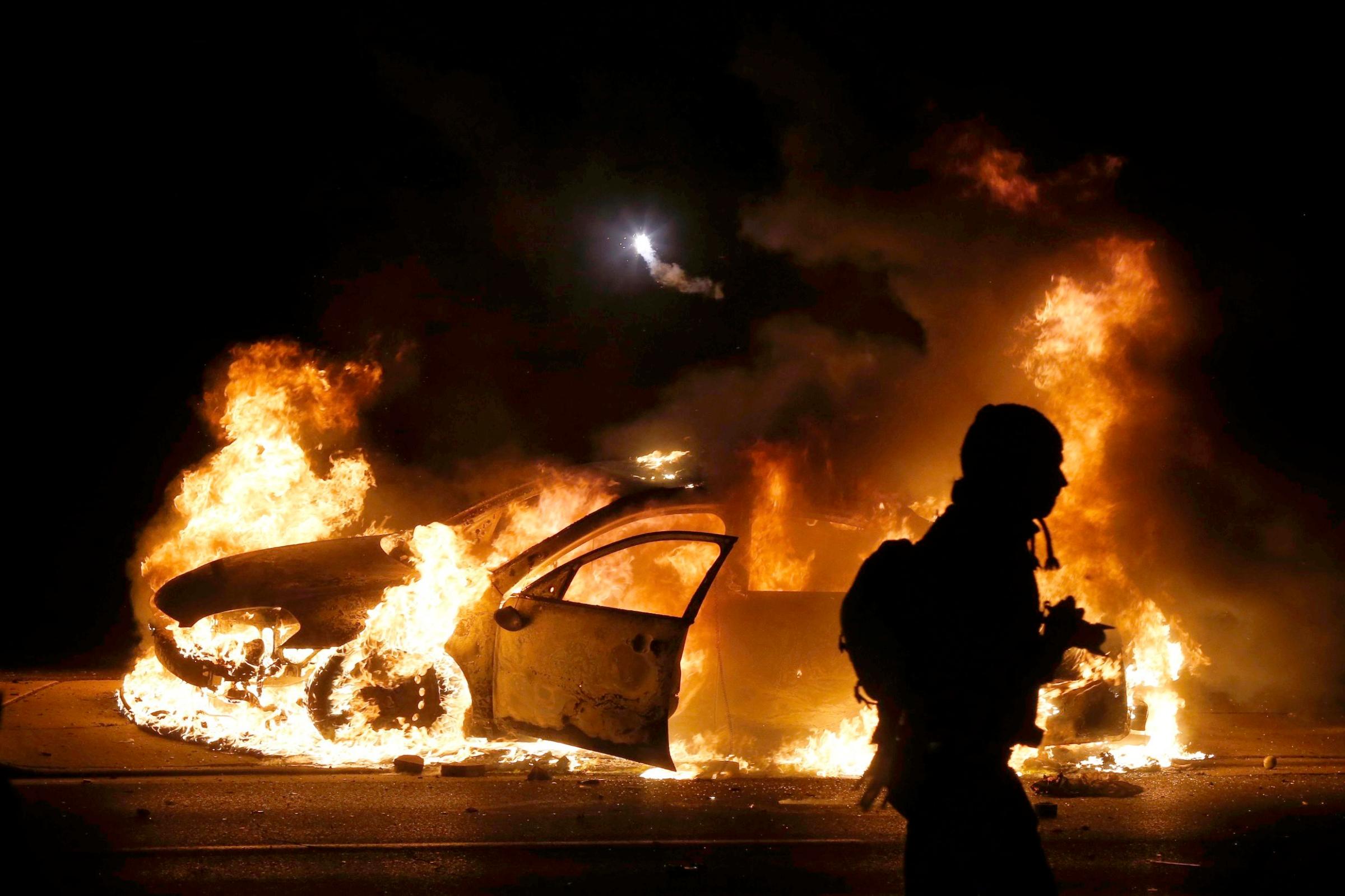
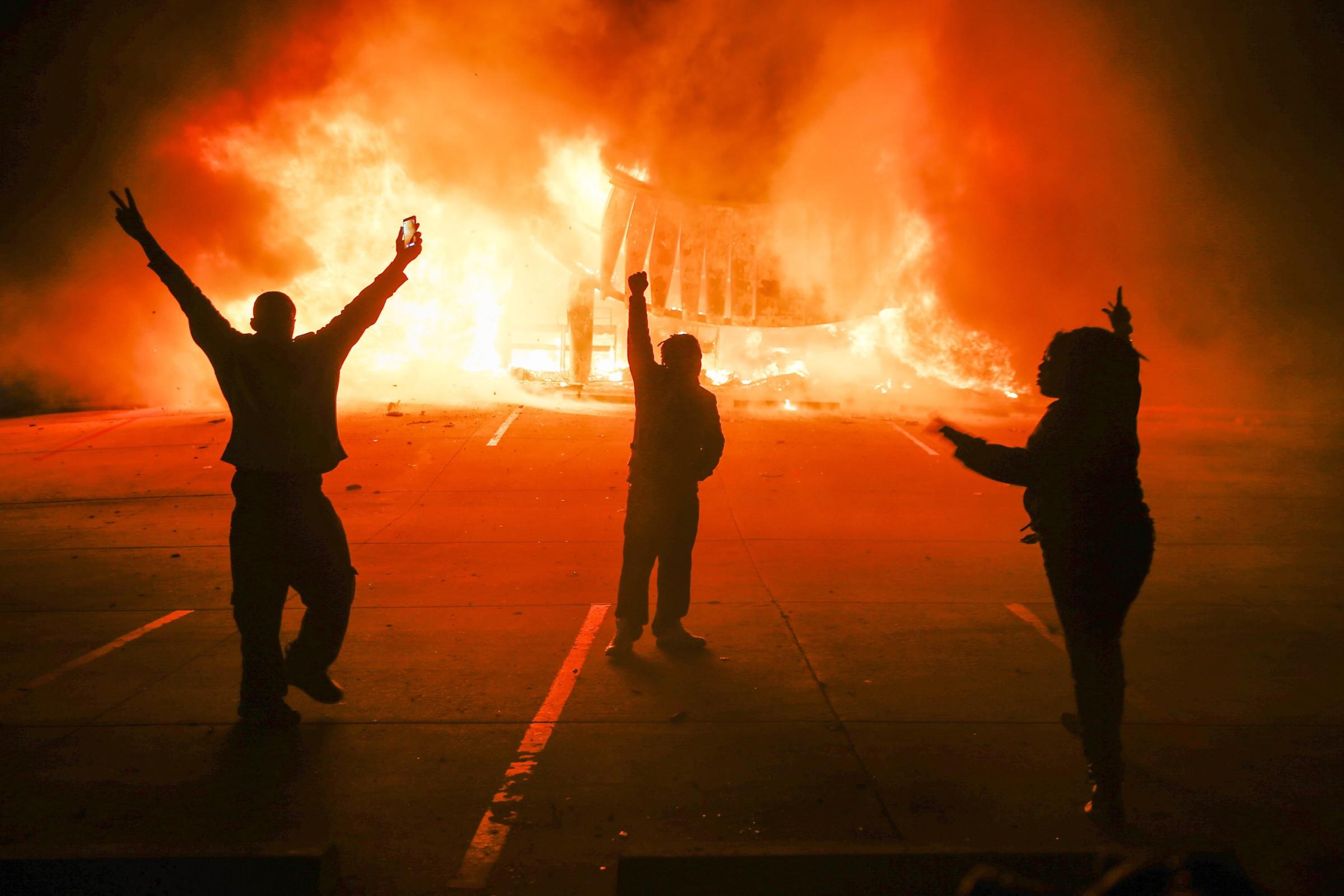
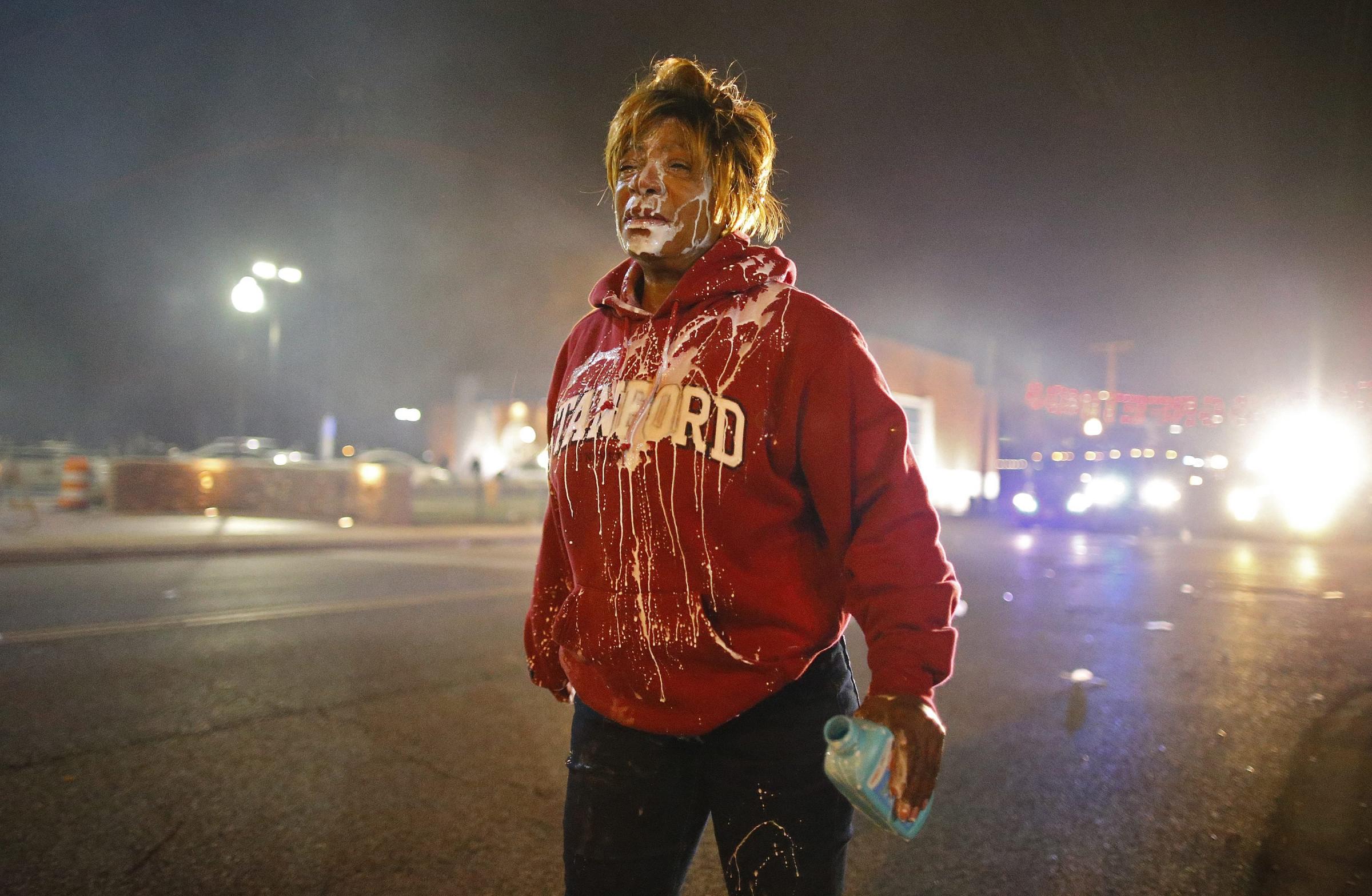
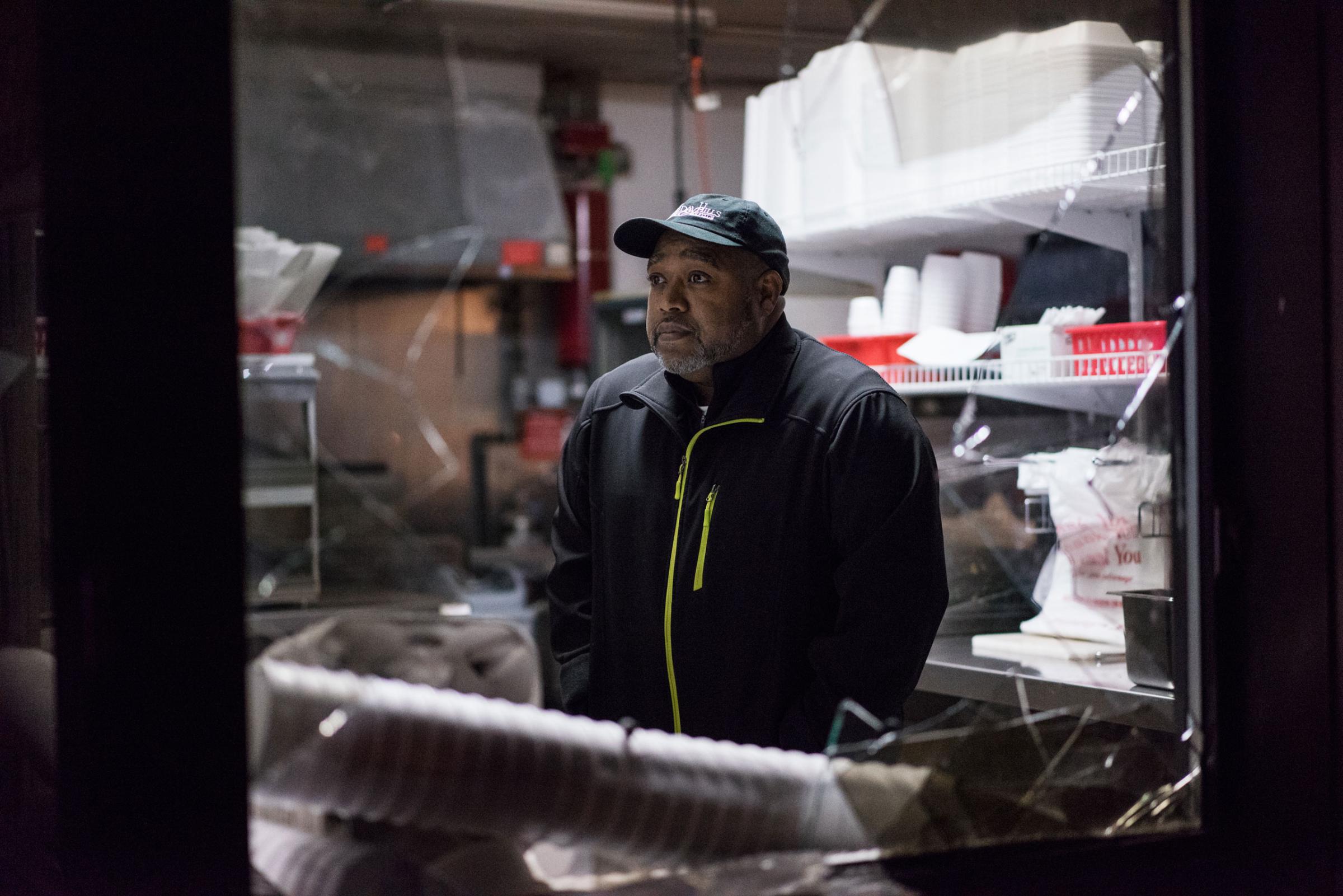
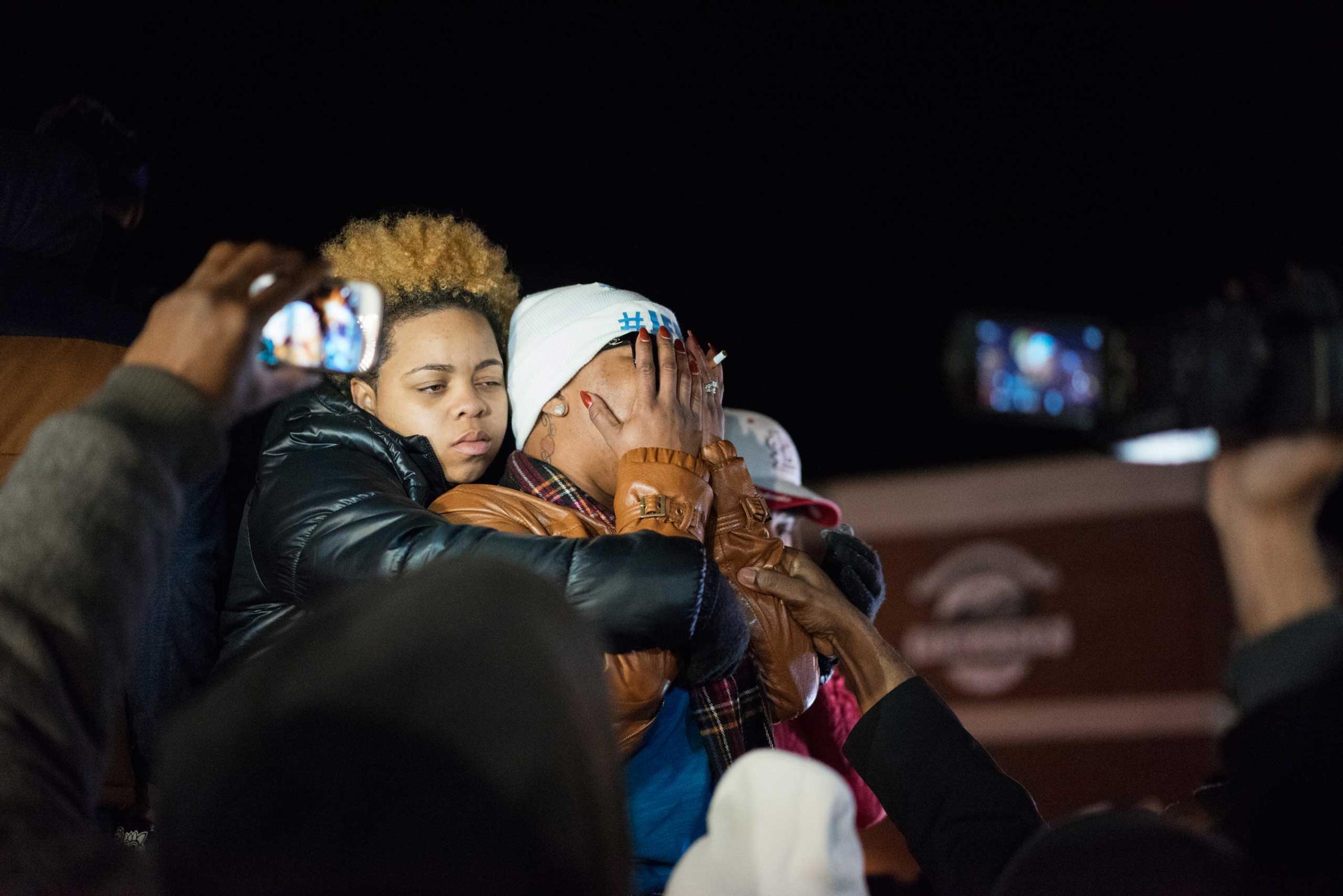
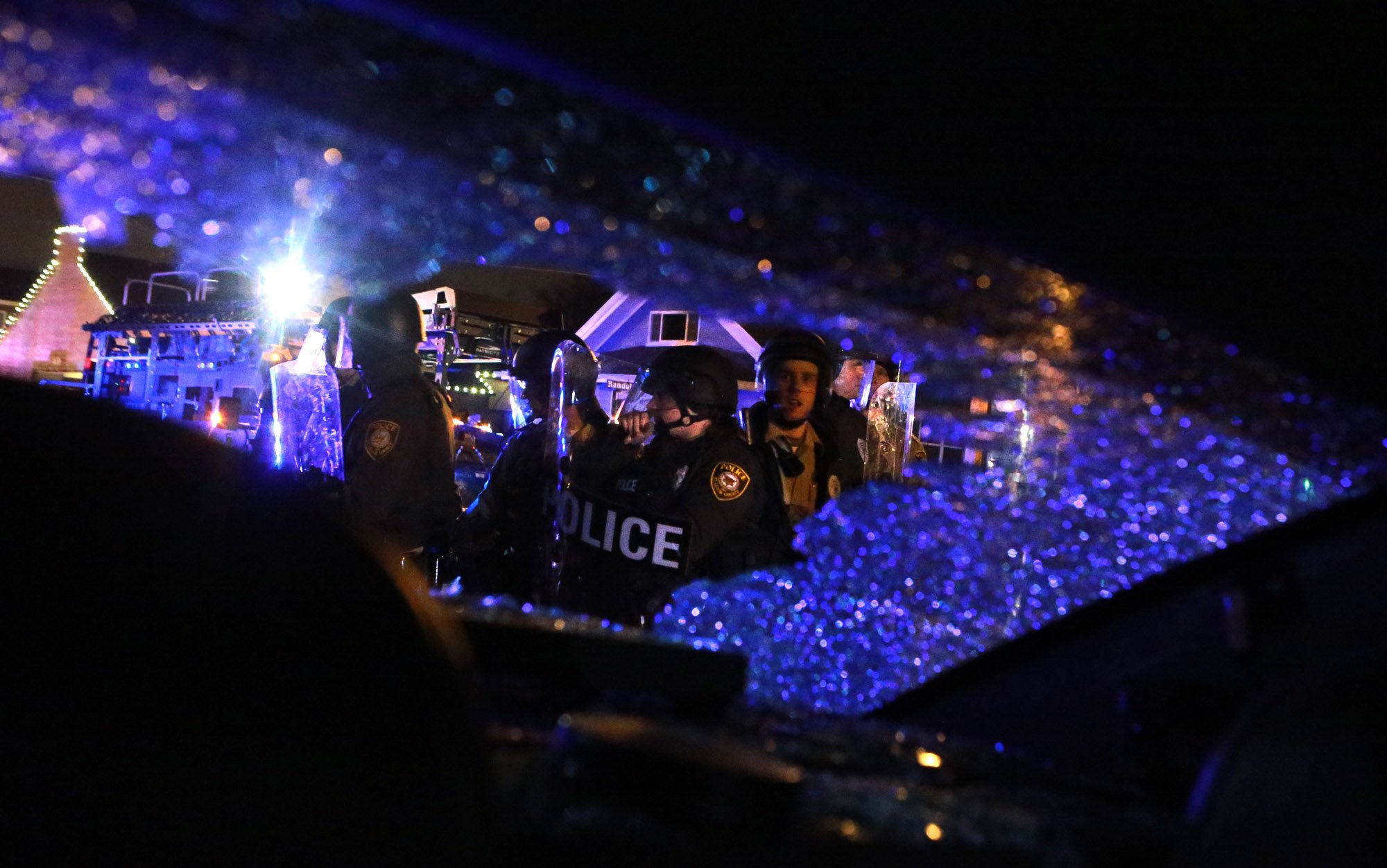
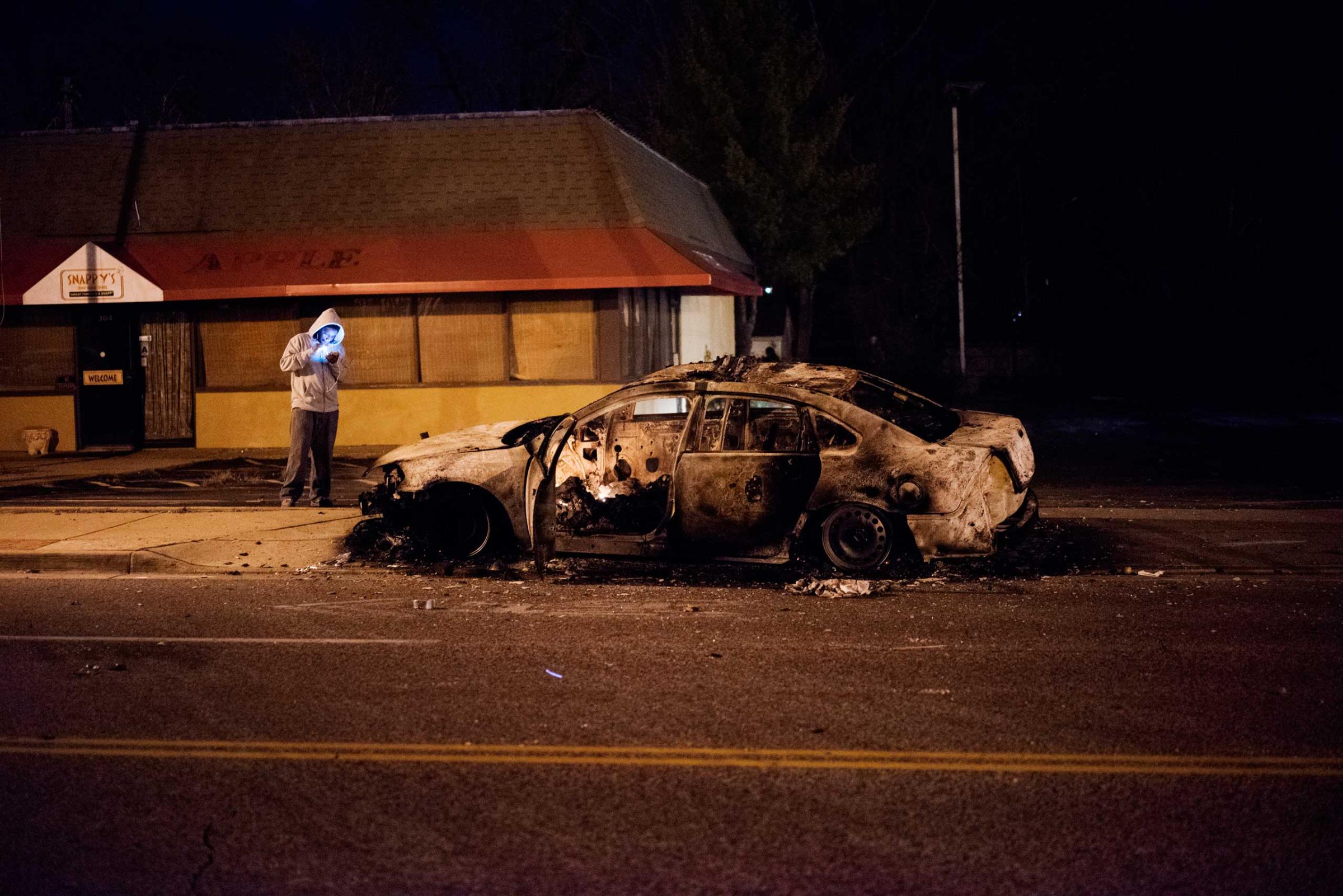
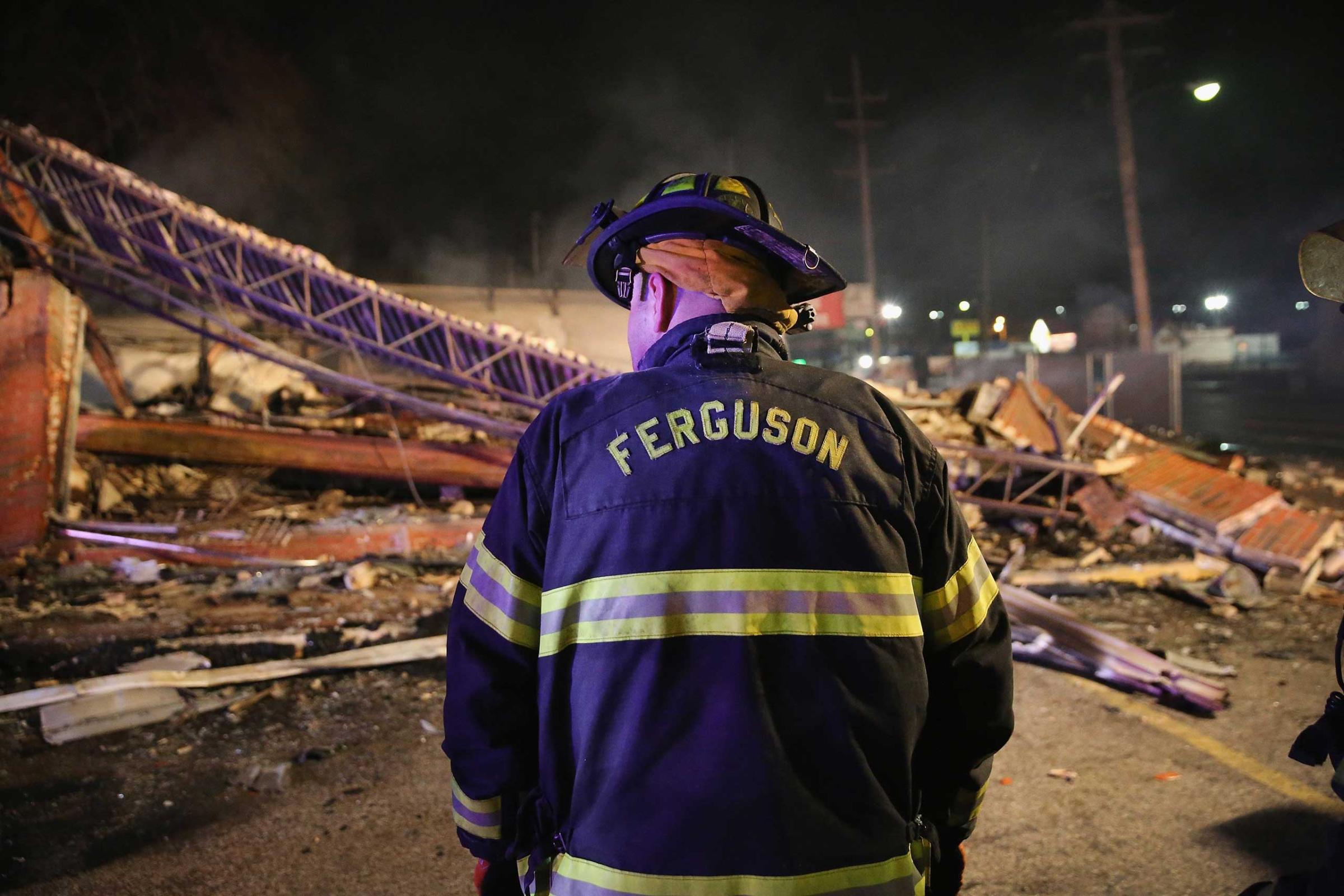
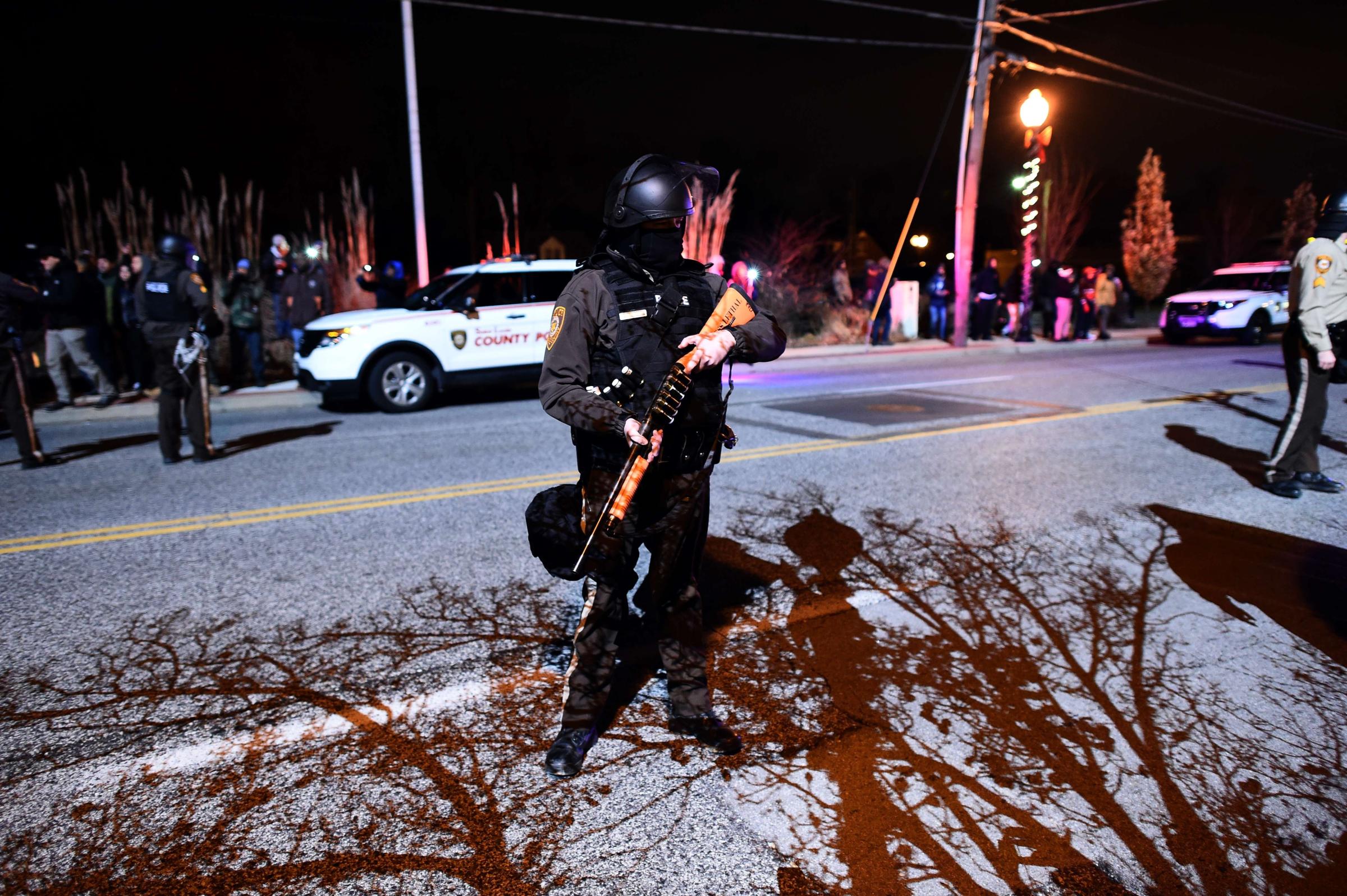
Sorbo is not alone. A webpage devoted to Tea Party politics has hundreds of comments disparaging the rioters, bemoaning the state of our country and very much blaming skin color as the culprit of this debauched way of dealing with the state of our society.
“To hear the libs, one would think that burning and looting are a justifiable way to judge negative events that effect (sic) the black,” one person wrote. “I intentionally used black because of a fact that you do not hear of these events when another skin color is in play. It is about time that the blacks start cleaning their own backyards before they start on ours.”
However, even the Tea Party gets its name from a riot, The Boston Tea Party. For those who need a quick history brush-up, in 1773 American protesters dumped an entire shipment of tea into the Boston Harbor to protest The Tea Act, which colonists maintained violated their rights. In response to this costly protest and civil unrest, the British government enforced The Coercive Acts, ending local government in Massachusetts, which in turn led to the American Revolution and created our great country.
Should the Ferguson Protestors Be TIME’s Person of the Year? Vote Below for #TIMEPOY
Samuel Adams wrote of the incident, claiming it “was not the act of a lawless mob, but was instead a principled protest and the only remaining option the people had to defend their constitutional rights” according to John K. Alexander, author of Samuel Adams: America’s Revolutionary Politician.
That protest back in 1773 was meant to effect political and societal change, and while the destruction of property in that case may not have ended in loss of human life, the revolution that took place afterward certainly did. What separates a heralded victory in history from an attempt at societal change, a cry for help from the country’s trampled, today? The fact that we won.
In terms of riots being more common in black communities, that is true only when the riots are politically aimed.
The obvious example here is the L.A. Riots of 1992, after the Rodney King beating and verdict. I would put forth that peaceful protesting is a luxury of those already in mainstream culture, those who can be assured their voices will be heard without violence, those who can afford to wait for the change they want.
“I risk sounding racist but if this was a white kid there would be no riot,” another person wrote on the Tea Party page. “History shows us that blacks in this country are more apt to riot than any other population. They are stirred up by racist black people and set out to cause problems. End of story.”
Blacks in this country are more apt to riot because they are one of the populations here who still need to. In the case of the 1992 riots, 30 years of black people trying to talk about their struggles of racial profiling and muted, but still vastly unfair, treatment, came to a boil. Sometimes, enough is simply too much. And after that catalyst event, the landscape of southern California changed, and nationally, police forces took note.
And the racism they are fighting, the racism we are all fighting, is still alive and well throughout our nation. The modern racism may not culminate in separate water fountains and separate seating in the backs of buses, but its insidious nature is perhaps even more dangerous to the individuals who have to live under the shroud of stereotypical lies society foists upon them.
Instead of tearing down other human beings who are acting upon decades of pent-up anger at a system decidedly against them, a system that has told them they are less than human for years, we ought to be reaching out to help them regain the humanity they lost, not when a few set fire to the buildings in Ferguson, but when they were born the wrong color in the post-racial America.
Read next: What History Books Should Say About Ferguson
More Must-Reads from TIME
- Why Trump’s Message Worked on Latino Men
- What Trump’s Win Could Mean for Housing
- The 100 Must-Read Books of 2024
- Sleep Doctors Share the 1 Tip That’s Changed Their Lives
- Column: Let’s Bring Back Romance
- What It’s Like to Have Long COVID As a Kid
- FX’s Say Nothing Is the Must-Watch Political Thriller of 2024
- Merle Bombardieri Is Helping People Make the Baby Decision
Contact us at letters@time.com